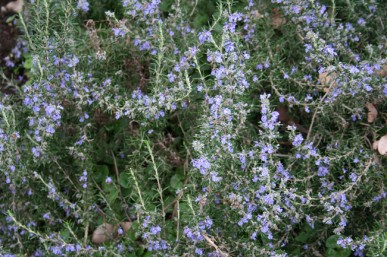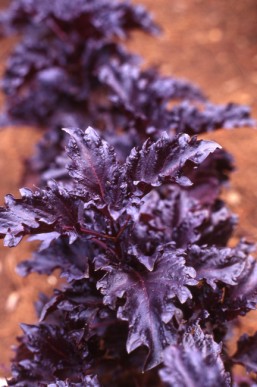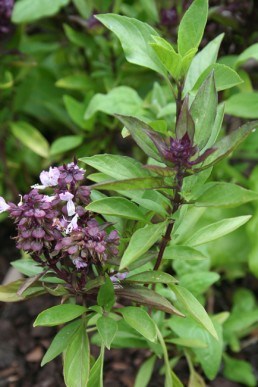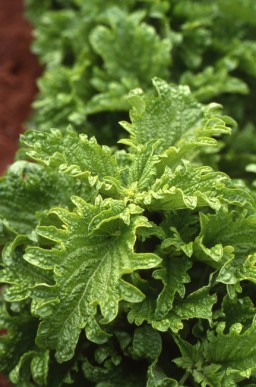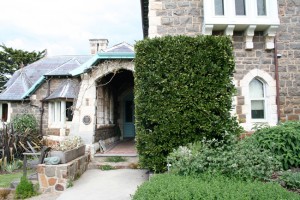Rosemary (Rosmarinus officinalis), a native of the Mediterranean, is a woody shrub which can grow to a height of 1 m. It has short, tough leaves densely bunched on the stems, and pale blue flowers in winter. There are several cultivars including ‘Tuscan blue’ and ‘Blue lagoon’, which are dwarf forms with dark-blue flowers; ‘Roseus’ with pink flowers; ‘Albus’ with white flowers; ‘Aureus’, which has leaves speckled with yellow; and ‘Prostratus’, a prostrate form. Most rosemaries can be grown from seed sown in spring and all grow well from cuttings taken in spring or summer. Rosemary likes a sunny, well-drained position with a slightly alkaline soil. It can be slow growing at first, but will need to be pruned regularly after the first two years. The prostrate and dwarf varieties are excellent for rockeries or hanging baskets. Harvest rosemary whenever it is needed.
Nothing can compare with the first fresh sprig of basil picked in spring and if you haven’t already planted your basil, now is the time to put it in. It’s hard to believe that such a deliciously aromatic herb could have such a contradictory lineage. Basil is native to tropical and subtropical regions of Asia, Africa and Central and South America, but the main centre of diversity appears to be Africa. It has been cultivated for more than 4000 years. The sixteenth century English herbalist, John Gerard, believed that basil would stimulate the heart and ‘taketh away melancholy and maketh a man merry and glad’ but early Greek and Roman physicians said that it would only grow well if it were planted ‘amid vile shouts and curses’. In the language of flowers, basil means hatred, but it can also signify goodness and love. Read more
Sweet bay (Laurus nobilis ) was seen by the old herbalists as a virtuous tree which “resisteth witchcraft very potently”. The Greeks dedicated it to Apollo, the sun god. The Delphic priestesses, oracles of Apollo, held bay leaves between their lips as they made prophesies. In Greek and Roman cultures victors, heroes, academics and artistic figures were rewarded with a wreath or crown of bay leaves. This gave rise to the terms ‘baccalaureate’ and ‘poet laureate’. Read more

